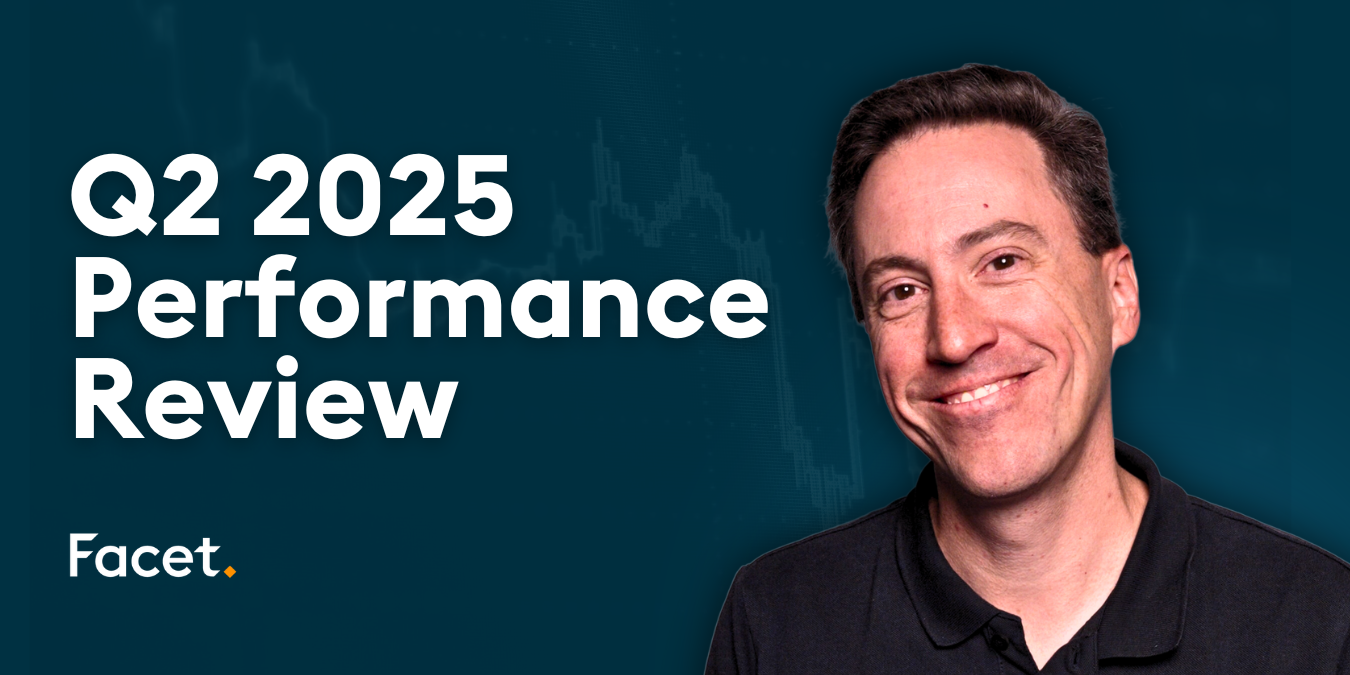
The information provided is based on the published date.
Key takeaways
- As new parents, a proactive plan to handle the expected and unexpected is essential to your peace of mind
- Being in control of your monthly expenses and having an emergency fund are foundational elements
- A little bit of protection – the right insurance and estate planning documents – can guard against a big financial loss
- An emergency response plan can help you navigate the unexpected with clarity and confidence
- With the right foundation, you can focus on saving and investing for your family's future
Becoming a parent and raising a child is one of the most exciting and challenging experiences most of us will have.
Suddenly, you may realize just how important it is to have a plan to protect the people you love most. Even if you’re not sleep-deprived, the to-do lists can feel daunting. But the best way to experience being a mom or dad is with the freedom from worry that comes from being well prepared.
Where should you begin? Here are some essential financial tips to building a strong foundation so you can enjoy worry-free time with your new baby.
Changes to consider when having a new baby
When you have a new child, everything changes, especially your finances. Staying in control of your monthly cash flow alleviates stress and creates financial stability.
Even if you’re playing catch up, it’s never too late to create a realistic outline of how much money you need each month for your new family member.
Give yourself some time to adjust to your new monthly expenses. Track your purchases so you know where your money goes, and you can adjust your spending plan accordingly.
And don’t forget about taxes. As a new mom or dad, you may qualify for some significant tax credits. Know if you qualify for certain tax breaks, and adjust your tax withholdings accordingly so you bring more money home each month.
Related: Earned Income Tax Credit (EITC): Eligibility requirements, special considerations
Plan for major expenses, like child care, as far ahead as possible, ideally 6-12 months in advance. One quick tip for parents: start applying for daycare ASAP. This will help you find the highest-quality option at the right price point.
Remember to plan for the unexpected since surprise expenses are more common with a new baby in your household. If you don’t already have an emergency fund, start building one now. Even if you start small, a financial cushion will help alleviate your anxiety and build financial security.
Related: What is an emergency fund?
Protection tips when having a new baby
There are a few essential protections every family needs. If you’re putting off these tasks (and many people do), remember that these legal and financial protections are for the people you love when they’re at their most vulnerable. Take care of them now, and your family will be secure for years to come.
Health insurance policy
Many parents don’t know that a new child won’t automatically get added to their health insurance plan. You’ll need to contact your HR department to do that after the baby is born. You may also want to consider funding tax-favored accounts for healthcare expenses.
Depending on your coverage, you might want to consider contributing to a flexible spending account (FSA) or a health savings account (HSA) to supplement any gaps (e.g., deductibles) in your health plan.
Disability insurance policy
Disability insurance (DI) replaces a portion of your income if you cannot work due to an injury or illness. DI acts as a financial safety net, providing the security all new parents so dearly need. Most employers offer group disability insurance plans at discounted rates. If you purchase one of these plans, just make sure it will cover enough of your income for a long-term period.
Life insurance policy
If there is more than one parent, you’ll both want to buy life insurance, even if one of you will be staying at home. The amount you need can vary based on your income, debt, existing savings and investments, and education plans.
Estate planning
Estate planning isn’t just for the wealthy. For most of us, estate planning means taking a few simple steps to ensure your family is financially secure. Both parents need wills (and possibly a trust) and legal documents for financial and healthcare decisions (a power of attorney and an advanced directive) if you can’t make them on your own. Finally, remember that some accounts and life insurance require you to name who will inherit the money – you may hear this referred to as naming your beneficiaries.
A peace of mind plan
The odds are you’ll never need it, but having a response plan for health emergencies, car accidents, or natural disasters is essential to creating peace of mind. Make sure you have this information organized and ready to go:
- Social Security Number
- Birth certificate
- Wills and other legal documents
- Contact and policy information for insurance providers
- Contact information for other professionals (doctor(s), financial advisor, attorney, child care center)
- Username and password information for important websites (e.g., financial accounts)
You may even want to share this information with your family. Emergencies might be rare, but you will be glad you planned in advance if the unexpected happens.
Look forward to the future
Once your legal and financial foundation is in place, you’ll breathe a little easier, so you can turn your attention to your family’s future financial goals, like buying that dream home.
You’ll also need to get started with a college savings plan. Even if you start with $100 per month (or whatever you can do), setting up and funding a savings account for education, like a 529 plan, is a great investment to make for their future.
And while your energy will be focused on your new baby, remember to keep an eye on your own financial wellness. Make sure you carve out time to look at your retirement savings.
One final tip for new parents: take the time to talk about what money means to your family. It’s important to keep the lines of communication open about everything from day-to-day expenses to major expenditures – like paying for college.
Early parenthood doesn’t have to be an anxious time. With these key protections in place for your family, you’ll feel safer, happier, and less stressed. As a result, you’ll get more joy and less anxiety from spending time with your new baby. And if you’re wondering what your new baby will need, follow these tips.
Final word
As a new parent, you have a lot to consider, and you want to make smart decisions that put you in control of the life you want for your family. To learn how Facet's expert financial planning can protect your family and help you plan for your future, schedule a free introductory call today.
Facet
Facet Wealth, Inc. (“Facet”) is an SEC registered investment adviser headquartered in Baltimore, Maryland. This is not an offer to sell securities or the solicitation of an offer to purchase securities. This is not investment, financial, legal, or tax advice. Past performance is not a guarantee of future performance.


